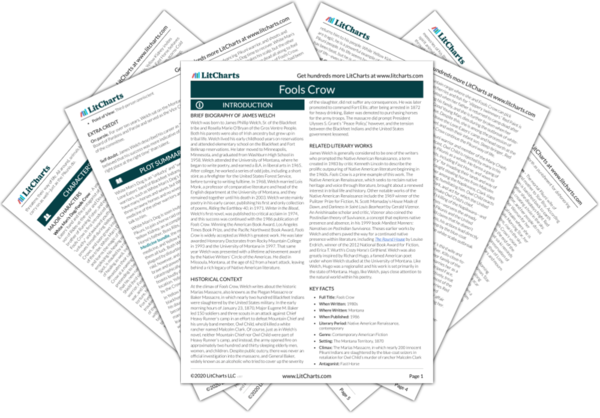The Otter Medicine bundle, like the Beaver Medicine bundle, is a source of great Pikuni power, but both bundles prove powerless against the invading Napikwans. Just as many Pikunis have already noted, they will lose no matter what they do. War with the seizers means instant death, but assimilation to Napikwan ways is a slow—and significantly more painful—death. This belief is reflected in the Pikunis’ resistance and return to blackhorn hunting against the Napikwans’ wishes.
